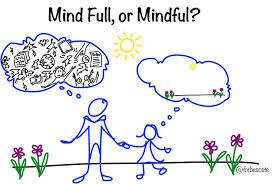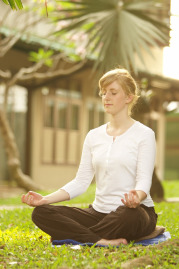
The reality of business travel
When you first contemplated the idea of travelling for work, you may have thought, “oh, that’s a glamorous perk”. In fact, if you were anything like me, you may have pictured yourself jet setting around the globe, seeing new places, having wonderful experiences, and dining in exotic venues. Initially, yes, or if you are one of the lucky ones, this may be the case. As the reality sets in however, for most of us, so does the disenchantment… it’s not quite the fairy tale we were led to believe by glossy tales.
In fact, one study conducted with the World Bank Group, stated that 75% of business travellers report high or very high stress levels as a direct impact, on lengthy trips or those with frequent changes1. A situation worsened for those with families, or those who travel frequently. Similarly, my own Ph.D. 2, which to date represents the biggest global study ever conducted on business travellers, demonstrated that people who travel for business, are more often than not experiencing negative social, emotional, physical and psychological consequences, at a more severe rate than non-business travellers. In fact, business travellers are 80 % more prone to burnout, which begins with exhaustion, then cynicism, then reduced efficacy, hugely affecting their well-being and effectiveness – both personally and professionally. As a result, you have very different and unique requirements in terms of support.
You may wonder how this manifests itself for you, so take a moment to reflect on these questions: Are you constantly exhausted, longing for your bed and chasing your glossy tale? Or perhaps struggling with feelings of missing out being away from your other half, your kids, home comforts or even that crucial social event with the girls? What about the physical aches and pains – is it easy running around carrying luggage and being cramped into small seats? Do you struggle to exercise and eat healthily, worrying about gaining weight? Do you find yourself wondering if you have made the right choice, are cut out for this life and have what it takes?
If you let this get on top of you, it can take years to recover from the build-up of negative experiences, thoughts and feelings. That’s the bad news. The good news is that with the right self-awareness, behaviours and mind-set, you can self-manage to make it work for you, whilst actually flourishing from life as a business traveller.
Mindfulness
If you have ears and eyes, there’s a good chance you’ve heard of the concept of mindfulness – the conscious state of being attentive to the present moment, observing thoughts and feelings, without judging them to be good or bad, but simply accepting as they are. Mindfulness is an ancient tradition that is all about living in the moment, awakening to every experience so life doesn’t slip by – enjoy the small things. Eckhart Tolle sums this up nicely: “In today’s rush, we all think too much — seek too much — want too much — and forget about the joy of just being.”
I became interested in mindfulness about 8 years ago, when I began working on a study looking at mindfulness and psychological flexibility in anxiety and depression3. Since then, I have integrated it into my work wherever possible – whether to help with stress, sleep, achieving goals, finding focus, figuring things out, or dealing with challenges of life – bringing calmness, security and inner strength that, frankly, feels incredible.

Mindfulness is a bit of a hot topic at the moment – quite rightly. People are recognizing the benefits across all areas of life and business travel is no different. Evidence is mounting demonstrating an increased sense of wellness and better work-life balance, something that most all women struggle with4. I’ve frequently celebrated with my clients who’ve seen the benefits of mindfulness first-hand. In fact, such celebrations can be seen on the BBC, where I recently worked with an athlete for the inaugural Salomon Glencoe Skyline, an extreme sport event, using mindfulness based approaches to improve enjoyment and performance of an immense event previously described as ‘the death race’. Despite challenges on race day (including nasty falls), their new mindfulness based awareness, tools and techniques resulted in a continuous smile and performance better than expected5. That’s a good reason to celebrate!
It’s no different for you. Business travellers I’ve worked with generally experience increased feelings of happiness and calm after practising mindfulness techniques. Many report feeling optimistic and better equipped to handle challenges and make decisions. Essentially, awareness and mindfulness helped people feel in a better place – socially, emotionally, physically and psychologically.
Mindfulness for Business Travel
So often when we travel, we are focused on preparing for the trip, getting through the journey, arriving at the destination, doing what needs to be done and getting home. Constantly planning, you are missing so much by simply not paying attention! Below are some top tips that will help improve the experience of business travel:
- Use the busy security line as an opportunity to practice deep breathing under chaotic (or stressful) situations. This will help retain a sense of calmness, get oxygen to the brain and clear your head. Start by bringing your attention the very act of breathing. Notice the sensation of the air moving through your nose, filling your lungs and the rise and fall of your chest. Repeat this 5 times, breathing slowly in and out, continuing whilst going through the motions of movement in the security line. If you notice your attention wandering, simply return to focusing on the breath.
- Cognitive flexibility (your ability to adapt to unexpected or changing circumstances) is critical for well-being in business travel. We are adaptable creatures, so if you experience a delay, or unexpected change, take a second to enjoy this opportunity to practice your flexibility for when it really matters. Challenge brings development. Enjoy it. Smile at fellow passengers. Remember,everyone has a different reason for their journey, their own story and preoccupations. Simply acknowledge your thoughts and emotions, remember that you have control over them, then practice letting go of frustrations or negativity. It’s ok to have these, but refocus the mind on something constructive.
- Recovery is paramount in business travel and one key aspect of this is relaxation. When you get to your destination, explore and practice mindful walking. Pay attention to what you are seeing, feeling underfoot, how your muscles and body are stretching out after the journey and the good sensations that brings. If you can, find some grass and walk barefoot, focusing on how it feels underfoot, the smells and sounds. Feel as many sensations as possible.
What can you do?
The most successful people are happy; energised, engaged and effective. They work on themselves, improve self-awareness, have self-management strategies, balance to their lives, and a personal wellness plan that boosts them through the four stages of travel. I coach professionals who travel for work to feel healthy, happy and energised and am offering a free consultation.

Dr Lucy Rattrie is a Chartered Psychologist and Wellness Coach, with a Ph.D. on engagement, burnout and wellbeing of global mobility and business travellers. She believes in the power of psychological strength in enabling people to achieve success in all areas of their lives and work. As a researcher and practitioner of positive psychology, who has blended her work with lifestyle medicine, she recognises the crucial impact employee wellness has on performance. As a specialist in improving wellness for professionals who travel, she provides 1-1 and group coaching with two programmes: Recovery and Thrive, both helping people live stress-free, calm, balanced, connected, with strong mental, emotional, physical health and energy. She can be contacted directly on lucy@creatingsona.com or via www.creatingsona.com.
Footnotes
1Espino, C., Sundstrom, S., Frick, H., Jacobs, M, Peters, M. (2002). International business travel: impact on families and travellers. Occupational and Environmental Medicine, 59, 309-322.
2Rattrie, L. T. B. (2013) . The role of demands and resources in the international work context: conceptual approach and empirical analysis. Doctor of Philosophy. The University of Stirling, Department of Management, Work & Organisation. Horizon Scholarship (Geneva based).
3White, R., Gumley, A., McTaggart, J., Rattrie, L., McConville, D., Cleare, S., Mitchell, G. (2013). Depression and Anxiety Following Psychosis: Associations with Mindfulness and Psychological Flexibility. Behavioural and Cognitive Psychotherapy, 41(1), 34-51.
4Michel, A., Bosch, C., & Rexroth, M. (2014). Mindfulness as a cognitive -emotional segmentation strategy: An intervention promoting work -life balance. Journal of Occupational & Organizational Psychology, 87(4), 733-754. doi:10.1111/joop.12072
5The Adventure Show, BBC 2 (2016). Episode 8.